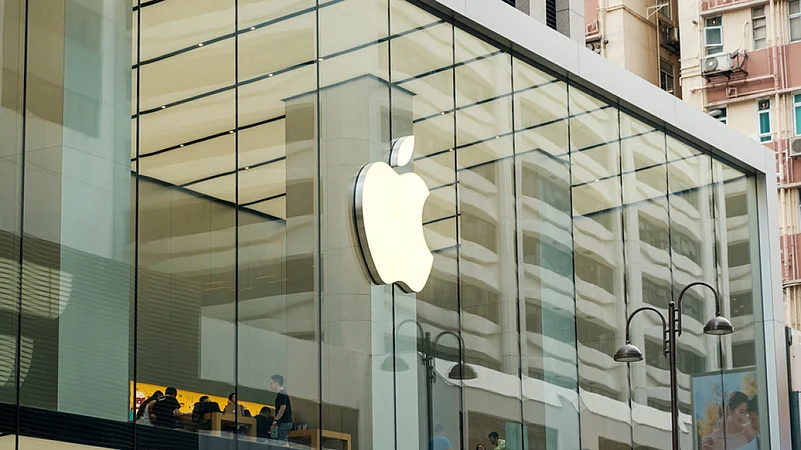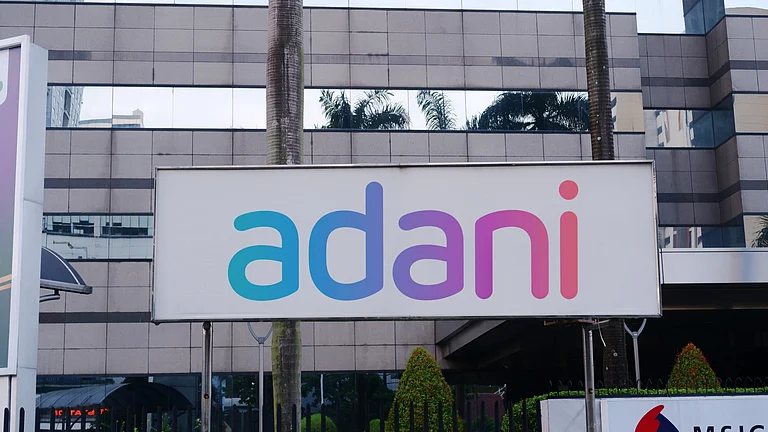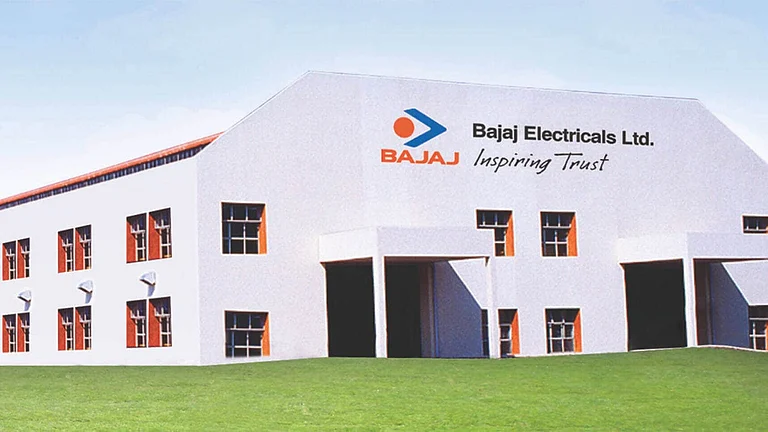The US, EU, and several other countries have imposed sanctions against Russia, as it continues to invade Ukraine. The sanctions imposed on Russia outdo some of the recent sanction packages including against Iran and North Korea. Apart from these sanctions, Russia’s infamous Vodka is banned in several US states and Switzerland. Russia has also become a social pariah in sports, with sports organizations excluding Russia and athletes from several key international sports events. However, a major brunt to the Russian Federation is when several global brands, some of which had their presence for 30 years in the country have severed ties with Russia. While some companies have suspended their operations in Russia, others have pulled out of partnerships with Russian companies.
Here are the global companies that have stopped operations in the Russian market:
Apple
The world’s most-valued company Apple has not only stopped the sale and exports of its products including iPhones but has also suspended Russian payments via Apple pay. Apple’s app store has also blocked Russian media outlets RT News and Sputnik News. In a letter to his employees, Apple’s CEO Tim Cook expressed concerns over the ongoing Ukrainian crisis and said that the company will provide monetary and humanitarian assistance to Ukrainians. The company has also disabled both traffic and live incidents in Apple Maps in Ukraine as a precautionary measure for Ukrainian citizens.
Google’s parent company Alphabet Inc has stopped Russian payments on Google pay. The company has also dropped Russian media outlets such as RT and Sputnik news from Google news. Just like its rival Apple, Google has disabled the live traffic data in Google Maps in Ukraine to ensure the safety of Ukrainians, after discussions with the regional authorities.
Microsoft
Microsoft has removed the mobile app of state-owned media outlet RT news from the Windows app store as well as banned all advertisements on Russian state-sponsored media. Microsoft in its blog post said that the company is currently focusing on four areas to provide assistance to Ukraine, it includes—protecting Ukraine from cyberattacks, protection from state-sponsored discrimination campaigns, support for humanitarian assistance, and the protection of its employees.
Facebook and Youtube
Facebook’s parent company Meta has restricted access to RT news and Sputnik news in Europe. The company is also planning to demote content from the Facebook and Instagram pages of both state-owned media outlets. The company has earlier blocked the monetization of content by the Russian media outlets on its platforms. According to the Indian Express, the company on February 28, removed a network of at least 40 fake accounts, groups, and pages across Facebook and Instagram, which were pro-Russian information campaigns and were targetting Ukrainians.
Meanwhile, Youtube has also decided to block the youtube channels of RT news and Sputnik news.
Yoel Roth, Head of Site Integrity at Twitter on March 1 tweeted that the company has added labels to Tweets that share links to Russian state-affiliated media websites and are taking steps to significantly reduce the circulation of this content on Twitter. The company has also paused advertisements in Ukraine and Russia.
BP Plc and Shell
British company British Petroleum (BP) Plc has exited 20 per cent of its stake in the Russian oil company Rosneft. According to Bloomberg, BP Plc is one of the largest foreign investors in the Russian oil market and its exit could result in a $25 billion write-off and cut its global oil and gas production by a third.
On February 28, Shell announced that it is going to exit its partnership with Russian oil company Gazprom, and related entities including its 27.5 per cent stake in the Sakhalin-II liquified natural gas facility, its 50 per cent stake in the Salym Petroleum Development and the Gydan energy venture as well as its involvement in the Nord Stream II pipeline project. The company has invested around $3 billion in all these ventures in Russia.
Calling Russia’s invasion of Ukraine as senseless, Ben Van Beurden, Shell’s CEO said, “Our decision to exit is one we take with conviction. We cannot – and we will not – stand by. Our immediate focus is the safety of our people in Ukraine and supporting our people in Russia. In discussion with governments around the world, we will also work through the detailed business implications, including the importance of secure energy supplies to Europe and other markets, in compliance with relevant sanctions.”
Equinor
Norwegian energy company Equinor has decided to end its joint ventures with Russian-owned Rosneft, according to Reuters. The company which has had a presence in Russia for over 30 years, has partnered with Rosneft since 2012 in several projects including the heavy oil and gas field North Komsomolskoye in West Siberia and the North Danilovsky development in Eastern Siberia. Equinor has invested $1.2 billion in various projects in Russia till 2021, and its petroleum production in Russia stood at 2 million boepd till 2021.
In a statement, Anders Opedal, President and CEO of Equinor, said, "We are all deeply troubled by the invasion of Ukraine, which represents a terrible setback for the world, and we are thinking of all those who are suffering because of the military action.”
“In the current situation, we regard our position as untenable. We will now stop new investments into our Russian business, and we will start the process of exiting our joint ventures in a manner that is consistent with our values. Our top priority in this difficult situation is the safety and security of our people,” he added.
Total Energies
On March 1, French Energy company, Total Energies said that the company will no longer provide capital for new projects in Russia. It, however, did not say whether the company will halt operations in Russia or not. According to Reuters, the company holds a 19.4 per cent stake in Novatek, which is Russia’s largest producer of liquified natural gas.
“TotalEnergies supports the scope and strength of the sanctions put in place by Europe and will implement them regardless of the consequences (currently being assessed) on its activities in Russia,” it said in a press release.
ExxonMobil
ExxonMobil, which is amongst the world’s largest energy producers, on March 1, announced that it is discontinuing its operations at the Sakhalin-1 project and that the company will not invest in new developments in Russia.
“As the operator of Sakhalin-1, we have an obligation to ensure the safety of people, protection of the environment, and integrity of operations. Our role as an operator goes beyond an equity investment. The process to discontinue operations will need to be carefully managed and closely coordinated with the co-venturers in order to ensure it is executed safely,” the company said. According to Reuters, the company has $4 billion worth of assets in Russia.
Ford, and General Motors
Ford has discontinued all its operations in Russia including the production of van manufacturing and sales, as well as its joint venture in Russian company Soller PJSC. The company will donate $100,000 to the Global Giving Ukraine Relief Fund as part of its humanitarian assistance program.
General Motors (GM) has suspended all its operations in Russia, Reuters reported. Though the company does not have any plants in Russia the company has sold about 3,000 vehicles annually.
Volvo, Daimler Truck, and Volkswagen
Swedish automaker Volvo on February 28 announced that it is halting all its operations including sales in Russia. According to Reuters, the company sold 9,000 cars in 2021.
German automakers Daimler Truck and Volkswagen has halted operations in Russia. According to Reuters, Daimler Truck has halted all its business activities, including its partnership with Russian company Kamaz. The company also said that the company will neither build any trucks nor supply any components to Kamaz.
Meanwhile, the RIA news agency reported that Volkswagen has temporarily suspended car deliveries in Russia, due to supply chain bottlenecks.
Harley-Davidson, Mercedes-Benz, and BMW
The US bike maker Harley Davidson has stopped its operations including the shipment of bikes to Russia. According to Reuters, the company has 10 dealerships in Russia.
While BMW halted operations and exports in Russia citing supply-chain bottlenecks, Mercedes-Benz has stopped the export of passenger cars and vans as well as manufacturing in Russia.
Honda, Toyota, and Mazda
Honda, Toyota, and Mazda joined the list of automakers who have stopped operations in Russia, amid the ongoing Russia-Ukraine crisis. According to Reuters, Toyota which is the top Japanese automaker in Russia produces about 8,000 vehicles in Russia. Honda said that the difficulty in making payments and shipping vehicles has led to the suspension of its operations in Russia. Mazda said that exports of its joint venture plant in Vladivostok will end soon.
Jaguar Land Rover and Aston Martin
Owned by the Tata Group, Jaguar Land Rover has halted car deliveries in Russia, as the company continues to monitor the situation on behalf of the global customer base, the company said in a statement. The UK, which makes the largest JLR market has welcomed the move.
Similarly, Aston Martin has halted the exports and production of its cars in Ukraine and Russia.
IKEA
On March 3, furniture-retail brand IKEA became the latest company to halt operations in Russia. According to the statement issued by the company, IKEA has paused all exports and imports in and out of Russia and Belarus, as well as suspended industry production including delivery and supplies in all its units in Russia. The company has also halted retail operations in Russia, however, its shopping centre Mega will continue to remain open for essential items such as food, groceries, and medicines. The move will impact 15,000 IKEA workers in Russia.
“The ambitions of the company groups are long term and we have secured employment and income stability for the immediate future and provide support to them and their families in the region,” the company said.
IKEA has announced immediate humanitarian assistance of 20 million euros for the people of Ukraine.
Siemens
Germany-based Siemen’s which builds trains, services factories and supplies software to large manufacturers have halted all its operations in Russia, according to Financial Times. Russia, which has had the company’s presence since 1852, contributes to the company’s sales by only 1 per cent. The halting of operation also includes Siemens' contract with Russian Railways to build high-speed trains worth 1.1 billion euros.
Maersk, MNC and CMA CGM
The World’s three largest shipping companies announced that they are suspending operations and halting cargo bookings to and from Russia until further notice, CNBC reported. However, the suspension excludes essential category items such as food, medical equipment, and humanitarian items.
Boeing, and Airbus
Boeing and Airbus joined global companies to halt operations in Russia. The two companies have decided to halt the supply of aircraft parts, services, and components to Russian airlines. This comes at the backdrop as several countries including the USA, UK and Canada have halted airlines operations in Russia.
AerCap
The Dublin-based AerCap, which is the world’s largest aircraft leasing company, has halted its contracts with Russian clients including Aeroflot, S7 Airlines, Rossiya, Azur Air and Ural Airlines, Business Insider reported. The company has 152 aircraft worth $2.5 billion in both Russia and Ukraine.
Nordea, HSBC, Mashreqbank and Raiffeisen Bank International
According to Reuters, Nordea Asset Management has decided to sell all its investments in Russia including investments in government bonds, equities, corporate debt, and alternatives. The British Bank HSBC has winded down its operations with a host of Russian banks including Russia’s second-largest bank VTB, Reuters reported. The bank has direct exposure with Russia, having annual revenue of $15 million.
Dubai-based Mashreqbank has also decided to halt its operations with Russian banks including lending to Russian banks, meanwhile, Austria’s largest bank Raiffeisen Bank International is planning to exit the Russian Federation. According to Reuters, Raiffeisen is Russia’s No. 10 bank by assets.
Nike, H&M, Vogue Fashion, Adidas
Nike, H&M, and Vogue Fashion have halted their operations in Russia. Nike has disabled the website and app purchases in Russia, whereas H&M and Vogue have suspended exports of goods.
Adidas has suspended its partnership with Russian Football Federation (RFS).
Visa and Mastercard
Visa and Mastercard, two major card payment firms have blocked several transactions with Russian banks. According to Reuters, about 4 per cent of Mastercard’s net revenues were from business conducted with Russia.
FedEx, UPS, DHL, and Kuehne+Nagel
US-based major logistics company FedEx and UPS have halted operations in Russia, whereas Germany-based DHL and Kuehne+Nagel has suspended shipments to and from Russia.
Disney, Warner, Sony, Paramount, Universal and Netflix
Disney, Warner, and Sony have halted the theatrical release of movies in Russia. According to The Guardian, Disney called off the release of its movie ‘Turning Red’ which was set to premiere in Russia on March 10. Warner Bros has called off the release of ‘The Batman’ in Russia. Sony has also paused the release of ‘Morbius’ in Russia. Paramount Pictures has halted the release of its movies 'The Lost City and Sonic the Hedgehog 2’ in Russia.
Meanwhile, Netflix has stopped all future projects and acquisitions in Russia, according to Reuters.
Nokia and Ericsson
Finish telecommunication company has halted deliveries in Russia, Reuters reported. Meanwhile, Swedish telecommunication company Ericsson has also suspended deliveries to the Russian Federation. With both major telecommunications pulling out, only Huawei is operating its services in Russia.
Notably, In India, apart from Tata group-owned JLR, no other company has suspended operations in Russia.
































